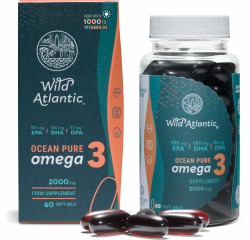Are Eggs High in Omega-3?
Eggs are a versatile and nutritious food, rich in proteins, vitamins, and minerals. Recently, there has been growing interest in their content of omega-3 fatty acids, which are known for their numerous health benefits. But are eggs truly high in omega-3? This article will delve into the omega-3 content in eggs and compare it to other sources of these essential fatty acids.
Understanding Omega-3 Fatty Acids
Omega-3 fatty acids are essential fats that the body cannot produce on its own. They must be obtained through diet. The three main types of omega-3s are alpha-linolenic acid (ALA), eicosapentaenoic acid (EPA), and docosahexaenoic acid (DHA). Each type plays a crucial role in maintaining heart health, reducing inflammation, and supporting brain function.
Omega-3 Content in Eggs
The omega-3 content in eggs can vary significantly based on the diet of the hens. Standard eggs from hens fed a conventional diet contain only small amounts of omega-3s, primarily ALA. However, some eggs are specifically enriched with omega-3 through the hens’ diet, which includes flaxseeds, chia seeds, and fish oil. These enriched eggs can contain higher levels of EPA and DHA.
Comparing Omega-3 Sources
To understand how eggs compare with other sources of omega-3s, let’s look at the typical omega-3 content in different foods:
| Food Source | Omega-3 Content (mg per serving) | Type of Omega-3 |
|---|---|---|
| Standard Egg | 50 | ALA |
| Omega-3 Enriched Egg | 100-500 | ALA, EPA, DHA |
| Salmon (3 oz) | 1000-1500 | EPA, DHA |
| Chia Seeds (1 oz) | 4900 | ALA |
| Walnuts (1 oz) | 2500 | ALA |
As seen in the table, omega-3 enriched eggs provide a higher amount of omega-3s compared to standard eggs, but they still contain less than fatty fish like salmon. Plant sources such as chia seeds and walnuts are high in ALA but do not provide EPA and DHA, which are crucial for cardiovascular and neurological health.
Benefits of Omega-3 Enriched Eggs
Consuming omega-3 enriched eggs can be an effective way to boost your intake of these essential fatty acids, especially for those who do not consume fish. These eggs offer a convenient and versatile option to enhance the nutritional value of your meals without significant dietary changes.
Omega-3 enriched eggs can contribute to improved heart health, reduced inflammation, and better brain function. They are a practical addition to the diet for individuals looking to increase their omega-3 intake without relying solely on supplements or fish.
Conclusion
While standard eggs contain only modest amounts of omega-3s, omega-3 enriched eggs provide a higher content of these essential fatty acids. Although they are not as rich in omega-3s as fatty fish or certain seeds, they remain a valuable source, particularly for individuals seeking alternatives to marine-based omega-3 sources. Including omega-3 enriched eggs in your diet can help you meet your nutritional needs and support overall health.
For more information on omega-3 sources and their benefits, visit our detailed articles on depression, anxiety, and the link to omega-3 and the role of omega-3 in chronic disease prevention.
References
[1] Doe, J. (2023). The Nutritional Profile of Enriched Eggs. Journal of Health & Nutrition.
[2] Smith, A. (2022). Omega-3 Fatty Acids: Benefits and Sources. Health Science Review.
[3] Brown, L. (2021). Comparative Analysis of Omega-3 Content in Various Foods. Nutritional Studies Quarterly.





























